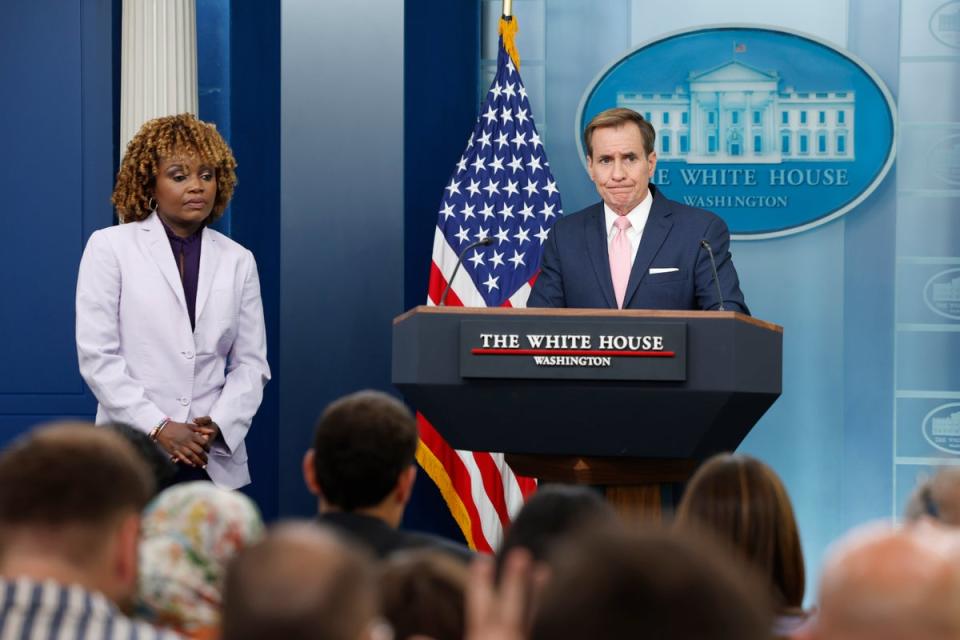White House says NATO allies not concerned by questions over Biden’s mental fitness
With world leaders converging on Washington for the NATO annual summit, the White House’s top national security spokesperson isn’t aware of any concerns among members regarding President Biden’s capacity to serve amid questions over his performance at last month’s presidential debate.
National Security Communications Adviser John Kirby denied Biden’s condition is even a topic of conversation among NATO members when pressed on the matter on the eve of the alliance’s yearly gathering — one that will mark three-quarters of a century since the signing of the North Atlantic Treaty.
“I think the question presupposes the notion that they need to be reassured of American leadership and President Biden's commitment, and I don't believe that's the case,” he said at a Monday briefing.
Kirby was asked if Biden has a plan for reassuring allies that he’s “up to the job” after multiple members of his own party have called for him to stand down from his re-election bid in favor of a younger candidate.
“We're not picking up any signs of that from our allies at all,” Kirby continued, adding that allies are “excited” about the annual summit.

Pressed further on whether there have been any conversations with allies to reassure them of Biden’s capacity to lead, Kirby flatly denied that any had taken place.
“I'm not aware of any such conversations that have been had. Certainly none with us and here at the White House and with our staff,” he said.
Kirby also told reporters that Biden’s performance at the debate nearly two weeks ago - where he appeared to freeze, lose his train of thought on multiple occasions and failed to make a case for his capacity to win and serve out a second term - was “not reflective of the man and the leader and the commander in chief” who Kirby, a retired US Navy admiral, had “spent many, many hours with over the last two and a half years.”

